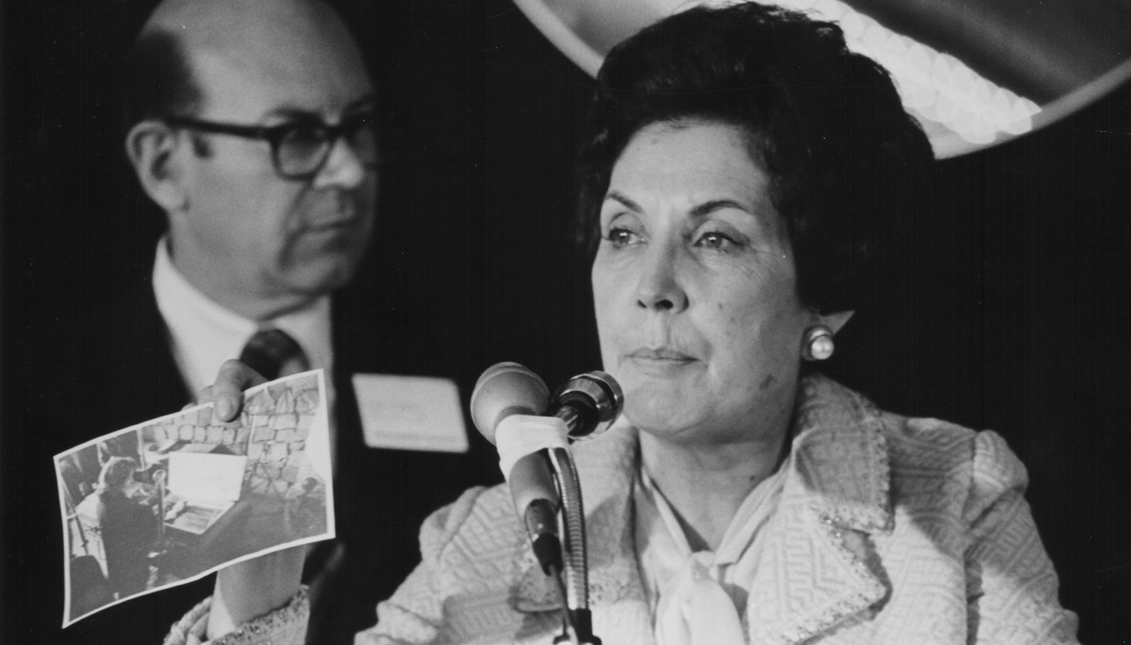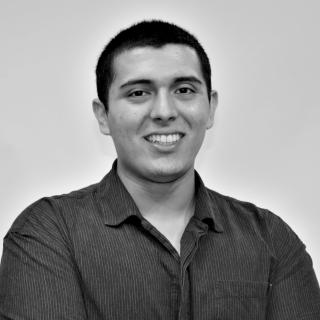
Chile remembers former First Lady Hortensia Bussi Soto de Allende
The wife of former Chilean president Salvador Allende died at 94 on June 18, 2009.
Pain can consume an individual but it can also be turned into one’s reason to fight, and Hortensia Bussi chose the latter.
She was born Mercedes Hortensia Bussi Sotoon July 22, 1914, in the Chilean port city of Valparaíso to a well-off family.
‘Tencha,’ as she was known by her friends and relatives, was ahead of her time. Upon finishing her studies at the University of Chile, she became a History and Geography teacher. Later, she worked as a librarian at the National Statistics Institute.
In the aftermath of an earthquake that destroyed the cities of Chillán and Concepción is where she met her future husband, and then-member of the Chamber of Deputies Salvador Allende.
The two organized to assist those left homeless by the natural disaster and married one year later.
Bussi remained nonpolitical while her husband climbed the ladders of national government. He quickly rose through the ranks to become Minister of Health and Social Welfare, Secretary of the Socialist Party, and a member of the Senate.
She campaigned alongside Allende in his four runs for president.
In his second presidential campaign, he lost by a little over 33,000 votes to Jorge Alessandri, an independent candidate who lowered his country’s tariffs, which allowed the United States to overflow the Chilean market with its products.
Allende’s next two runs showcased how antagonistic the Central Intelligence Agency (C.I.A.) and president Richard Nixon were towards his policies.
They feared the potential victory of the socilist leader, since they believed it to be a sign of the Soviet Union increasing their influence in Latin America.
From April 1962 to election day on Sept. 4 1964, the C.I.A. spent $2.6 million underwriting the campaign of Eduardo Frei Montalva, the Christian Democratic party’s candidate. An additional $3 million was spent on anti-Allende propaganda.
Frei was aware of the operation and frequently spoke with American diplomats who worked in the U.S. embassy in Chile.
Allende narrowly won in 1970, and he received less than 50% of the votes in the three-way race. His victory had to be confirmed by the congress.
This led the U.S. to manipulate the Chilean public to view him unfavorably. President Nixon stopped economically supporting Chile and the country later suffered from mass inflation.
Eight days after the election, National Security Advisor Henry Kissinger communicated his intent to foment a coup in Chile to C.I.A. director
The C.I.A later helped fund El Mercurio newspaper, which published several articles opposing Allende’s new policies and social aid programs
On September 11, 1973, Allende committed suicide after a military coup, backed by the U.S., bombed part of the presidential palace.
World-renowned author and recipient of the Presidential Medal of Freedom by former president Barack Obama, Isabel Allende commented on the memories of her second uncle.
“He always said that he was not going to surrender, he was not going to allow himself to be arrested, to be imprisoned, or to be sent into exile. Salvador Allende was going to die with his boots on as it happened. I believe he was a masterful politician,” she said.
This brought Augusto Pinochet, the far-right military general who led the junta against the Allende government, to power and with that, the U.S. brought an end to 50 years of democracy in Chile.
“If Allende should win the election in Chile, and then you have Castro in Cuba, what you will in effect have in Latin America is a Red sandwich, and eventually it will all be Red… And that’s what we confronted,” Nixon said while defending his administration’s actions against the South American country’s government.
The former American president went on to claim that Allende’s deposition was down to the Chilean people’s anger with the implementation of his Socialist system rather than outside intervention.
In the 17 years that General Pinochet was in charge, he censored the media, tortured thousands of members of the political opposition, and disbanded the national congress.
Following the military junta taking power,Bussi was offered political asylum in Mexico by president Luis Echeverría, who took in hundreds of refugees from the coup.
Before departing to Mexico, she attended the secret burial of her husband in the coastal city of Viña del Mar. The widow did not get to see the body because the military sealed the coffin.
It was well known that Allende had a longtime lover who he made his close political advisor, and had an office in the presidential palace.
The former first lady lived in Mexico City for several years, but took time to campaign across the world against the military dictatorship in her home country.
RELATED CONTENT
In 1975, she spoke at an event at Yale University titled, “The Conference on the CIA and World Peace.”
“It is no longer a secret today that CIA activities are directed to stimulate the establishment of Fascist regimes which are a constant threat to democracy and constantly to world peace,” she said.
The history teacher by trade detailed her contentions with America’s standing in the world.
“It appears as a cruel irony of history that this great nation, which was the first to gain its independence in the Western Hemisphere under the people’s right to self determination, should now be known because of its leaders as the champion of intervention and as the supporter of puppet regimes opposed to the people’s will,” Bussi expressed.
Comments like these continued to put her at odds with the U.S. and she would repeatedly be denied a visa to enter the country.
Thanks to her advocacy, organizations such as the Chile Solidarity Campaign and the Chile Committee for Human Rights were established to make the public in the United Kingdom aware of atrocities sponsored by the Pinochet regime.
In 1977, she became a candidate for rector of Glasgow University in Scotland.
After 15 years in exile, she returned to Chile on Sept. 24, 1988, 12 days before the national referendum that restored civilian rule to the South American country. She was welcomed by a swarm of Allende supporters, joyful to see their former first lady again.
“Today my exile ends, an unjust and inhumane exile that was imposed on me for having always defended the democratic values of my country and the highest values of the Chilean people... I am a Chilean woman who has lived a long life and my greatest desire is to return to my country, the country for which Salvador Allende gave his life,” she said.
Upon her return, she avoided aligning with any political movement and kept out of the public sphere until her death on June 18, 2009.
A statue of her husband was erected in 2000 at the Constitutional Square at La Moneda Palace in Santiago.
Beyond the death of Allende, Bussi also lived through the suicide of other family members.
Her daughter Beatriz who exiled in Cuba, committed suicide in there in 1977. The former first lady’s sister in-law took her life after being diagnosed with terminal cancer.
Tencha’s life was one of many hardships, but her fight to oppose the dictatorship was not in vain even after her death.
The memories of activists like Bussi coupled with protest against the government of president Sebastián Piñera inspired many Chileans to vote on October 25, 2020 in a national plebiscite to have a new constitution. They currently live under one drafted by the Pinochet government.
In May of this year, people voted to draft a new constitution through a conventional and the conservative coalition, Chile Vamos, received less than the third of the vote they needed to veto in the convention.
If the Andean country approves the newly-written constitution in September, it will do away with part of the pain caused by the dictatorship that forced former first lady Bussi into exile.











LEAVE A COMMENT: